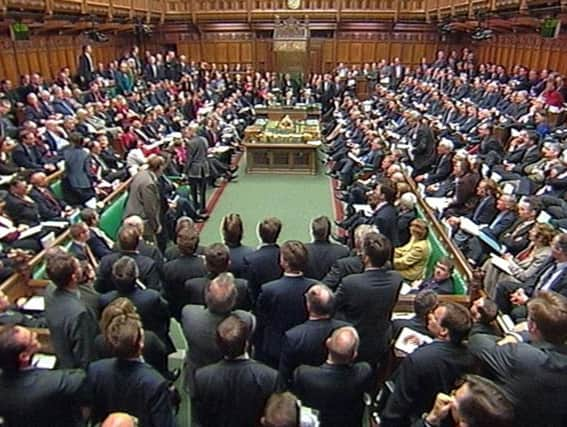David Torrance: FFA might just drive you mad


Lord Palmerston reportedly said only three people had ever really understood “the Schleswig-Holstein business” – the Prince Consort (who was dead), a German professor (who had gone mad) and himself (who had forgotten all about it).
On the surface, the idea of fiscal autonomy for Scotland – ie the devolution of everything except defence and foreign affairs – sounds neat and tidy, but in reality it’s a complicated tangle of political and economic arguments, most of which are lost on anyone beyond the Holyrood bubble.
Advertisement
Hide AdAdvertisement
Hide AdAnother problem is that it keeps taking different forms. When originally advocated in 1998, for example, “full fiscal freedom” even meant a devolved Scottish Government “should not be held responsible for servicing of the non-identifiable public debt of the United Kingdom” – the view of three Conservatives, Murdo Fraser, Michael Fry and Peter Smaill.
Now, all three are happily still alive and none have gone mad, although Fraser has now repudiated his plan; Fry wants full independence and Smaill believes it wouldn’t happen overnight. In 2001, meanwhile, the SNP took up the policy, seeing it as a way of attracting support from those opposed to full independence.
Only since 2007, however, has “full fiscal autonomy” (FFA) formed part of day-to-day political debate, largely as a result of Alex Salmond’s belief that it might form one question in a multi-option referendum on independence. Indeed for a while, he even toyed with a single-question plebiscite on what was sometimes called “devo-max”.
It roared into life again earlier this year when Salmond, now an ex-First Minister, said the SNP would pursue what he now called “Home Rule”, but when that proposal came under sustained attack from the three Unionist parties, other Nationalists began to redefine terms. The nub of the Unionist critique (and that of independent bodies like the Institute for Fiscal Studies) was that FFA would leave Scotland with fiscal “gap” of £7.6 billion and a total deficit between spending and taxation of double that figure.
In response, the SNP said such figures represented a “snapshot”, although critics countered that there existed several such snapshots all the way up to 2020.
Then Nationalists began arguing that it all depended upon the “fiscal framework” that accompanied any “Home Rule” settlement. Indeed on this point, the SNP MP (and former Scotsman executive) George Kerevan was quite explicit. “For Scotland to accept fiscal autonomy without in-built UK-wide fiscal balancing”, he wrote, “would be tantamount to economic suicide.” All federal systems, added Kerevan, possessed “mechanisms for cross-subsidising regions in economic need by regions in surplus”, thus to “deny” something similar (ie the Barnett Formula) to a fiscally autonomous Scotland would in his view “derail any move to Scottish Home Rule in the UK”.
That was sort of true, but then no constituent part of any existing federal country claimed to have “full fiscal autonomy” – the operative word being “full”.
What these contortions revealed, however, was an obvious intellectual trap for the SNP: if it conceded disadvantages to FFA, then by association it would also be accepting that independence (under which there would be no fiscal transfers) would leave Scotland worse off.
Advertisement
Hide AdAdvertisement
Hide AdAgain, it all boiled down to politics. As the Scottish Secretary David Mundell observed, the SNP “ask for things that they don’t really want”, then the UK Government makes sure “they don’t get it because it’s bad for Scotland”, and finally the SNP claims afterwards “that they’ve been deprived of something”.
But in the current climate, logical arguments – especially those involving balance sheets – don’t really count for much. Full fiscal autonomy is essentially a massive red herring that few unionists or nationalists genuinely desire, but at the same time it’s something on which the SNP cannot appear to backslide.
Perhaps in a century or so – much like the Schleswig-Holstein Question – everyone except historians will struggle to remember what all the fuss was about.